We know that some "initialization" logical operations need to be executed when the program starts, such as: Server configuration, various database (MySQL, Redis, Kafka, etc.) configurations, business object configurations, etc. In most scenarios, we have two initialization methods: implicit initialization and explicit initialization.
1. Implicit Initialization
Special Note: In Golang v1.21 and later versions, the execution order of the init initialization has changed and may cause problems for packages that rely on init to execute initialization logic. Therefore, it is not recommended to execute complex initialization logic in init. It is recommended to implement complex module initialization logic through explicit invocation.
Implicit initialization is generally executed through the package initialization method init. It should be noted that if there is a possibility of errors in the initialization logic, since errors in the init method cannot be caught by the upper layer, if initialization fails, the program startup is often directly terminated. For example:
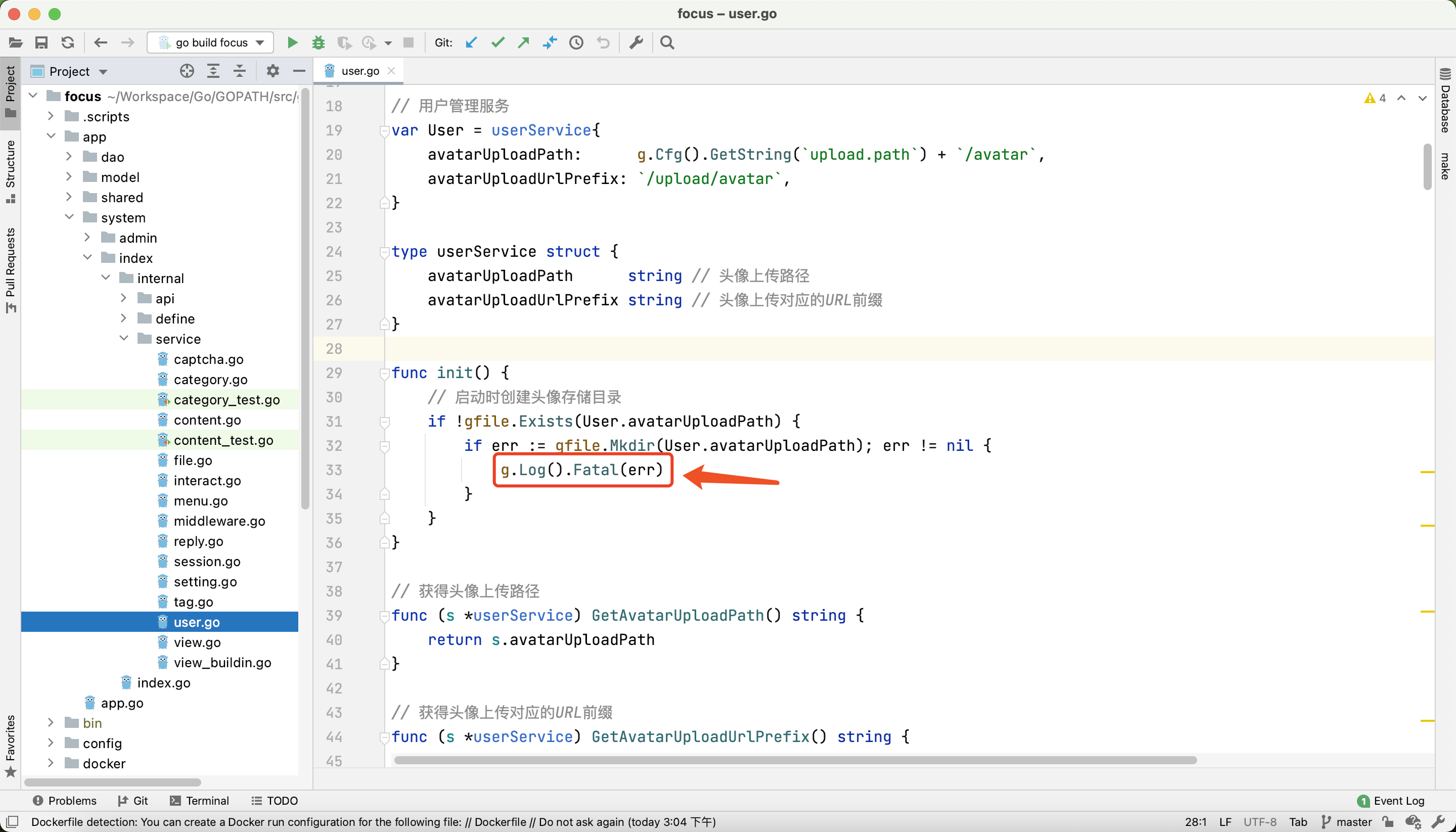
When implicit initialization fails, it often directly terminates the program startup.
The advantage of implicit initialization is that it does not require manually calling the initialization method, hiding initialization details from developers, and thus developers have no cognitive burden. However, the downside is also the same: developers do not know the initialization details, so once an error occurs, it is difficult to quickly pinpoint the cause. Therefore, when using implicit initialization, it is often required to print detailed errors and stack information when initialization errors occur to facilitate error localization.
Many modules in the GoFrame framework use implicit initialization to hide module initialization details and reduce developers' cognitive burden. For example:
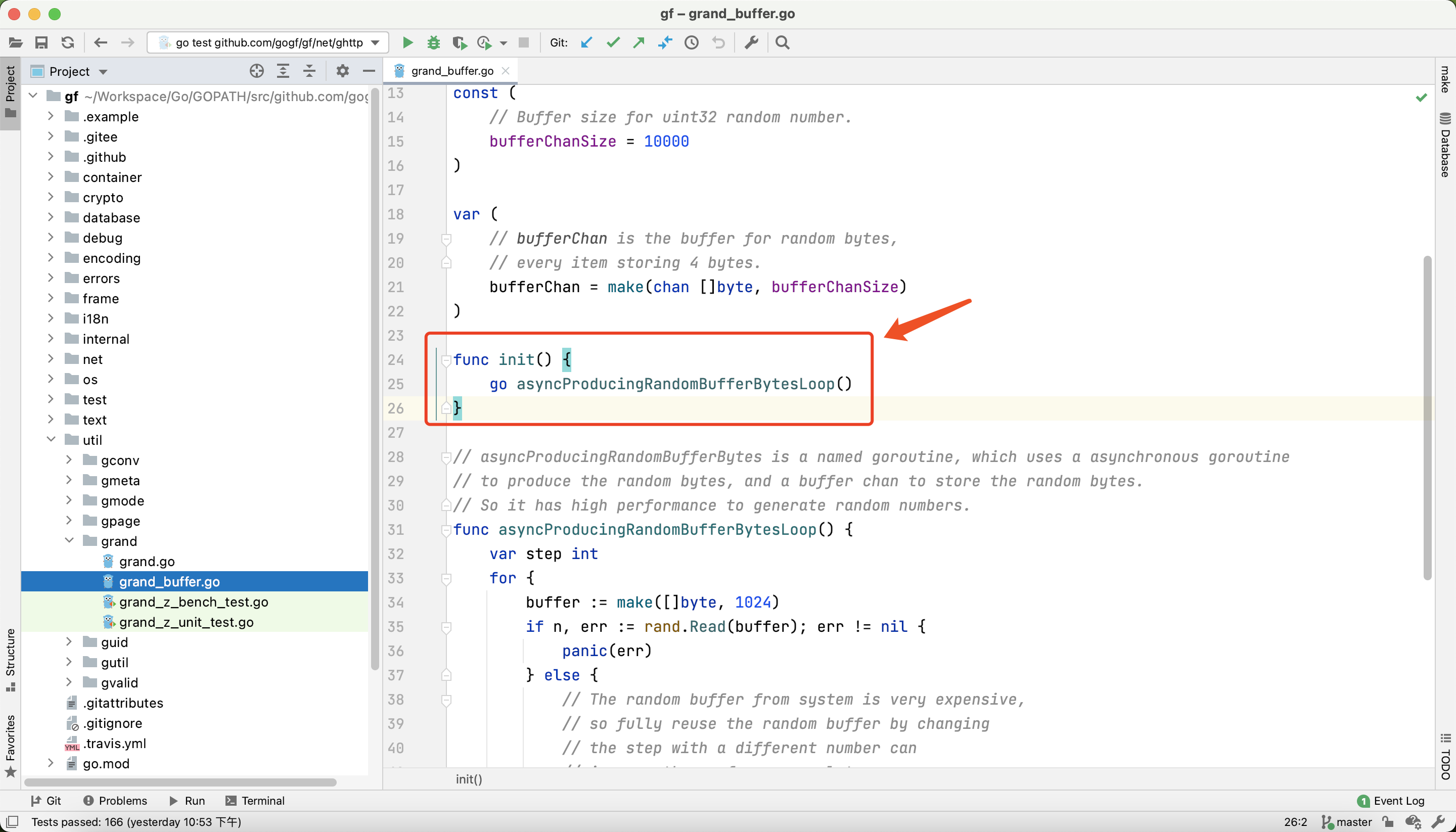
Implicit initialization design is common in modules of GoFrame.
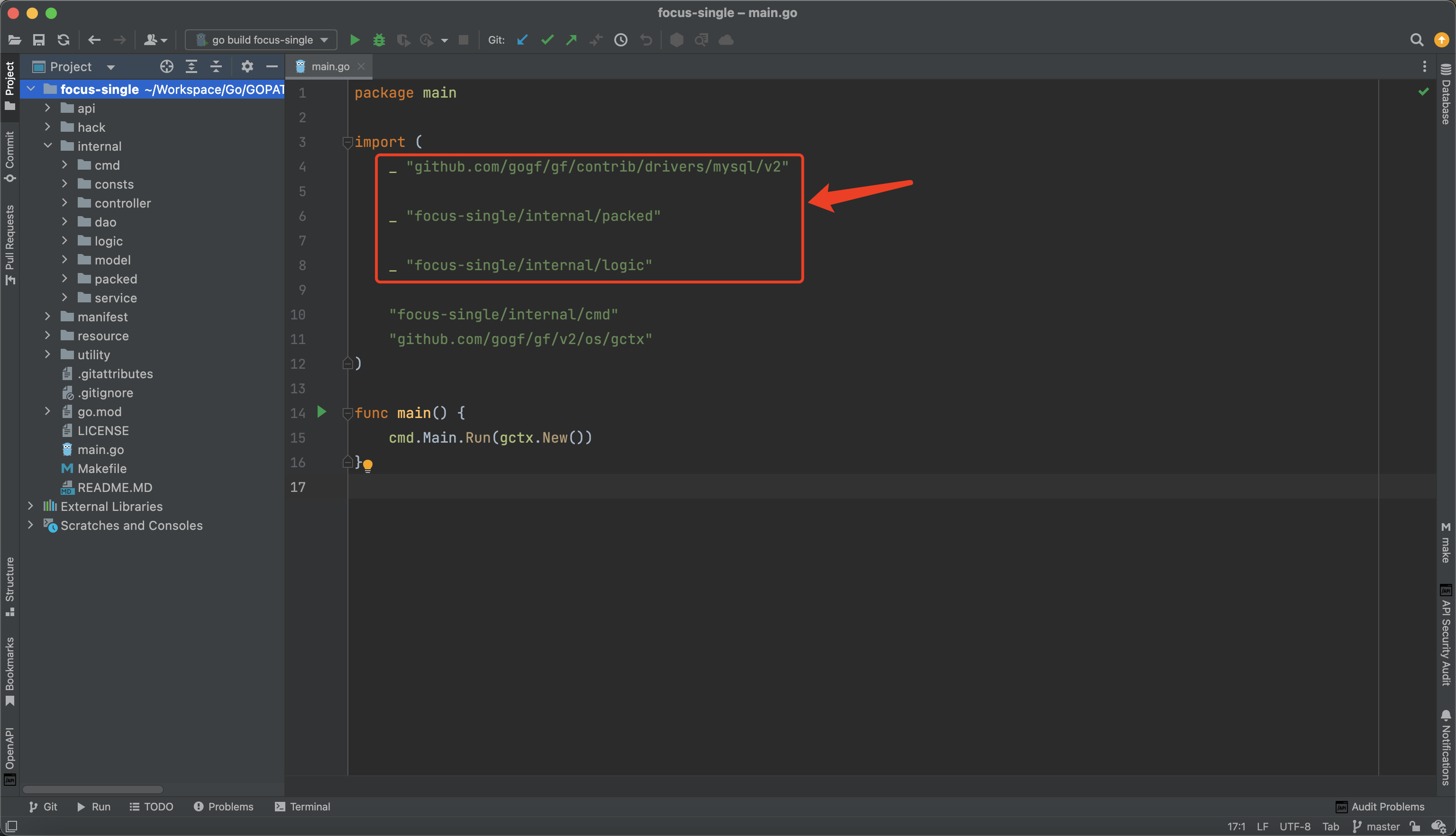
The main package using the GoFrame framework implicitly imports.
The initialization process of the package's init method:
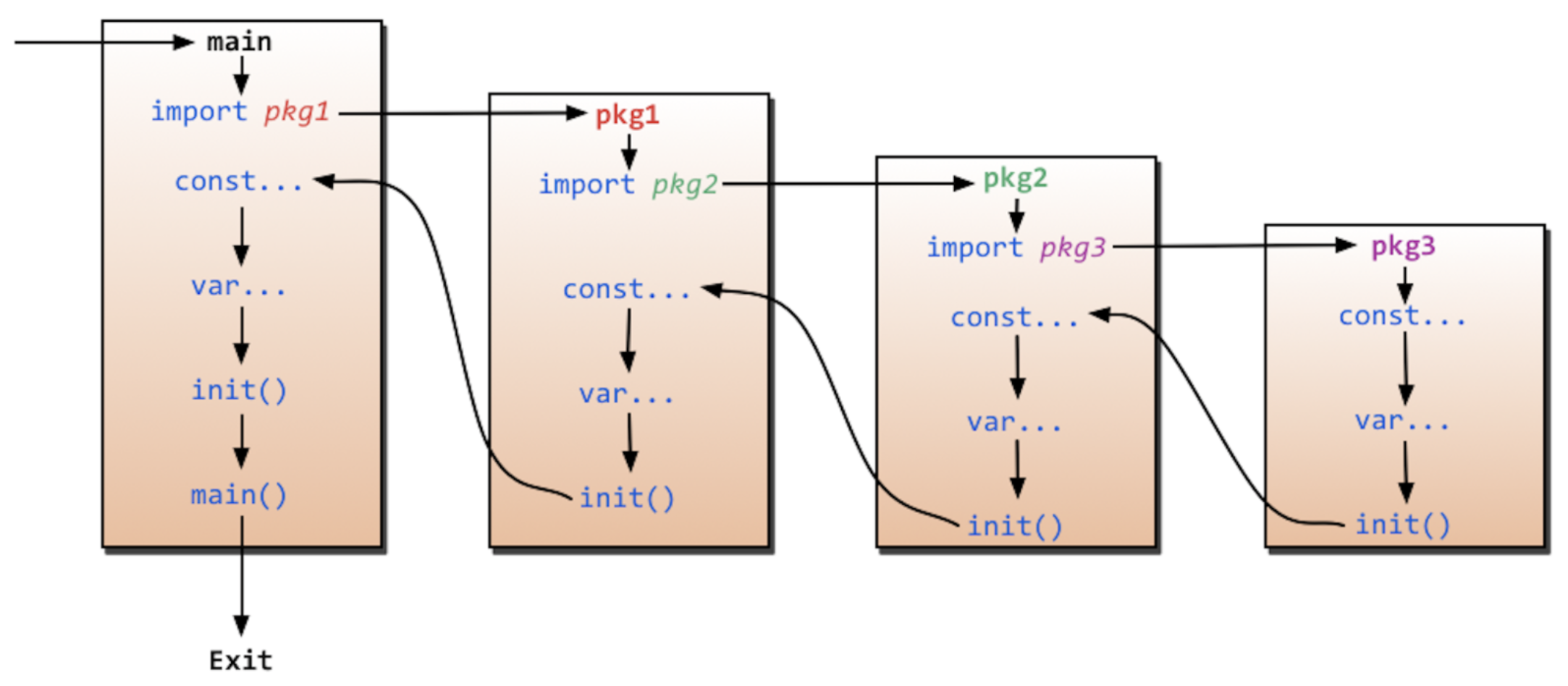
2. Explicit Initialization
Explicit initialization requires the developer to call specific methods to perform initialization operations when the program starts, such as in the main or boot module. Generally speaking, the initialization of basic components tends to use implicit initialization more, because users do not care about the initialization logic of underlying basic modules, while the initialization of business modules is mostly done using explicit initialization. For example:
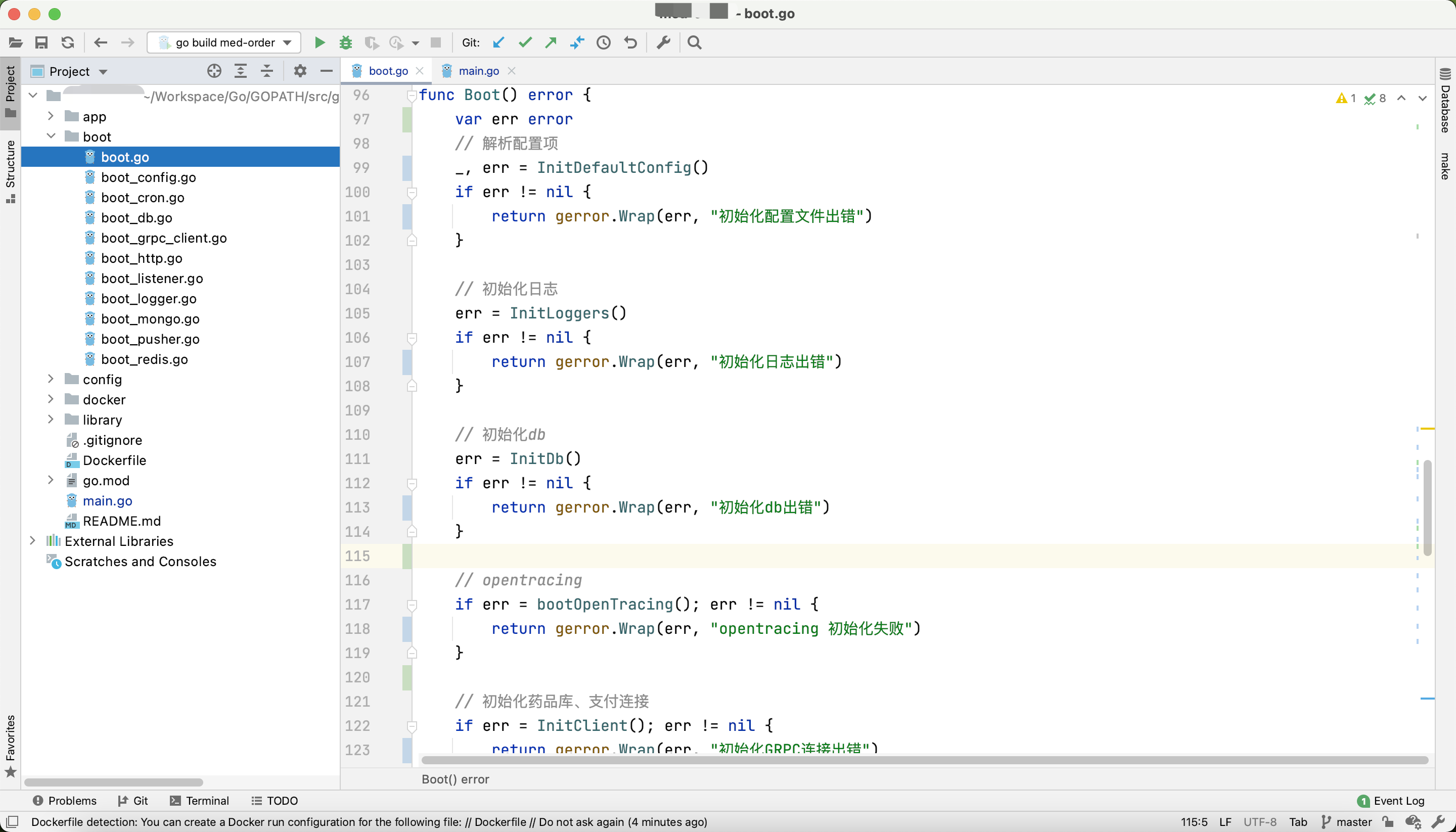 Explicit initialization executed sequentially in the
Explicit initialization executed sequentially in the boot package.
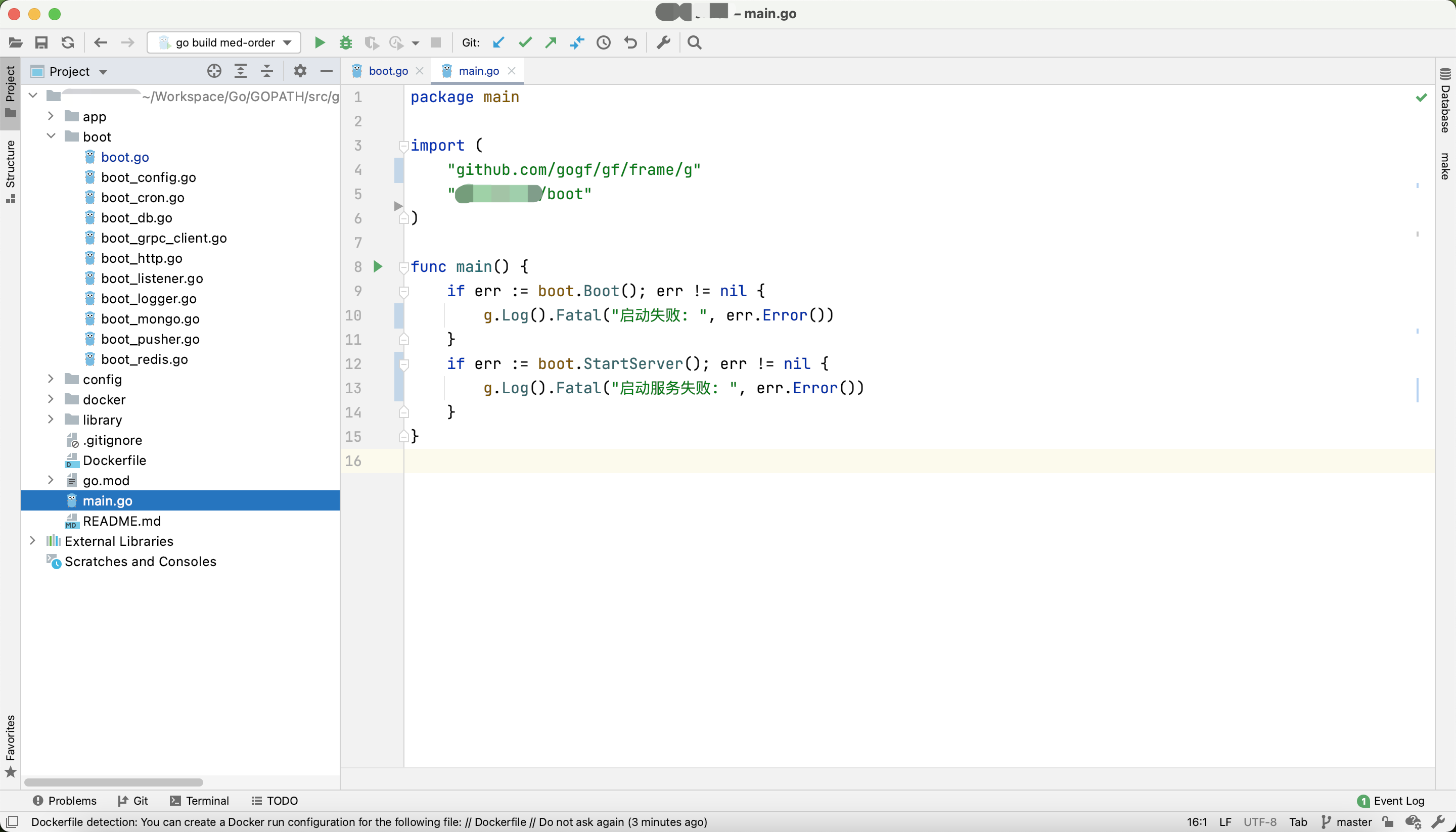 In the
In the main package, the boot.Boot() method is called to execute initialization.
3. How to Choose
In business scenarios, unless specially necessary, we recommend using explicit initialization to ensure better maintainability.